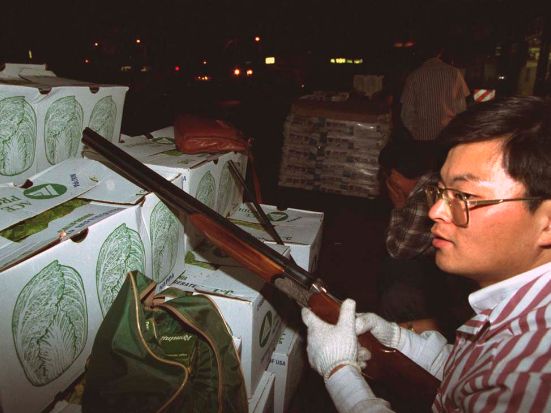28 years ago on April 29th, riots erupted in Los Angeles and continued for six days. The series of civil disturbances brought $1,000,000,000 worth of damage, hurt more than 2,000 businesses across the city, and left a deep imprint in the Korean American community in L.A. and beyond.
Today on April 29th—or sa-i-gu as in “4/29” in Korean—we remember the scars within us to reflect on our community’s past, present, and future.
Of the one-billion-dollars’ worth of material and property damage, it is estimated that Korean American businesses account for nearly 45%. Much of the damage was concentrated in Koreatown, where over 1,700 businesses were destroyed. Although the riots erupted largely as the African American community’s objection to police brutality and expression of frustration towards the government, the Korean American community was a major target of the violence: in part due to years of racial tensions and to negligence of the government.
In any case, it brought on an awakening moment for Korean Americans across the nation. “Korean Americans must become more involved in politics and American society. They need to begin to participate in other aspects of American life, other than the material,” describes a New York Times article that looked back at the Riots a year later. “They learned that very painfully. When the crisis came, they lacked the clout to win a fair share in recovery efforts.”
28 years later, today, we ask ourselves: Are we there yet?
Civic engagement—in other words, claiming the ownership of our community—is not a temporary event. It takes the repeated, consistent effort of each and every one of us in our daily lives. We hope you would continue to join our efforts of uplifting our community together through active civic engagement, as well as bolstering U.S.-Korea relations.
In doing so, please make sure to educate and engage others around you, for it is the only way to empower our community as a whole. We hope you would also consider interacting with us further on Facebook and Instagram, where you can share more information on the 1992 L.A. Riots as Stories.
In commemoration of this anniversary, the Korean American Grassroots Conference would like to share with you the voices of some of our students, who compared the hardships our community experienced with the 1992 L.A. Riots and how they reverberate today in times of COVID-19:
- Returning to Yellow Peril During Times of Panic and the Importance of Building Solidarity Beyond the Contemporary by Minnie Jung (Cornell ‘20)
- Reflections on pre- and post-1992 L.A. Riots by Joseph Jung (Clark ‘20)
- Anti-Blackness, Civil Rights, and Model Minority by Averi Suk (Columbia ‘22)
- Learning about My Family through History by Angela Shin (University of Washington ‘21)
- 28 Years Later: Are we there yet? by Sungkwan Jang (Program Director, KAGC)
- Interview with K.W. Lee, pioneer Korean American journalist, on the lack of voice for and of our community in 1992 and 2020 (coming up soon)
- KAGC Summary on the 1992 L.A. Riots

A shopping mall in Koreatown burns ablaze in the midst of looting, vandalism, and violence that spanned over 5 days. Hyungwon Kang / Los Angeles Times
